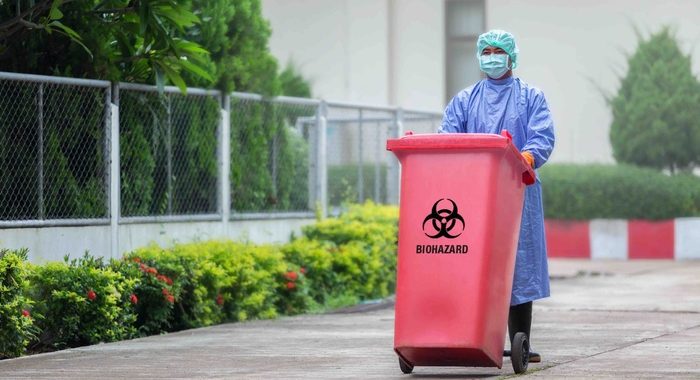Medical waste disposal is a vital aspect of healthcare systems that ensures the safe and proper management of potentially hazardous materials generated by healthcare facilities. As medical facilities are constantly generating waste that may pose significant risks to public health and the environment, it is crucial to have effective systems and protocols in place for their disposal. Medical waste includes various types of materials such as sharps, infectious waste, pharmaceuticals, and chemicals, which require specialized handling and disposal procedures to minimize potential harm.
Proper medical waste disposal is essential to prevent the spread of infections, protect healthcare workers, patients, and the environment from harm, and comply with regulatory guidelines. Inadequate or improper disposal can lead to adverse consequences such as the transmission of diseases, pollution of water sources and soil, and potential legal repercussions for healthcare facilities. Therefore, it is imperative for healthcare organizations and professionals to understand the importance of adhering to strict guidelines and regulations when dealing with medical waste. This article will explore the various aspects of medical waste disposal, including its types, methods of disposal, regulations involved, and the significance of proper management to ensure the well-being of both individuals and the environment.

Types of Medical Waste
Medical waste is a broad category that encompasses various types of materials generated by healthcare facilities. One significant type of medical waste is sharps, which include needles, syringes, and other sharp objects. These items can easily puncture the skin, leading to potential injuries and the transmission of pathogens. Infectious waste is another critical type of medical waste that includes items contaminated with bodily fluids or materials that are likely to harbor infectious agents. This can include used bandages, gloves, and soiled dressings. Pharmaceuticals and chemicals also fall under medical waste, as they can pose risks to human health and the environment if not disposed of properly.
Methods of Disposal
When it comes to medical waste disposal, different methods can be employed based on the specific type of waste. One common method is incineration, which involves high-temperature burning of the waste to eliminate pathogens and reduce volume. Another method is autoclaving, which uses steam under high pressure to sterilize the waste. Chemical treatment is also used, where chemicals are applied to neutralize hazardous substances in the waste. Moreover, some medical waste can be subjected to alternative treatment technologies such as microwave technology or shredding. Regardless of the method used, it is essential for healthcare facilities to partner with professional waste disposal services like Hazardous waste disposal Houston. They have the expertise and equipment to handle and dispose of medical waste safely and in compliance with regulations.
In conclusion, proper medical waste disposal is crucial for the prevention of infections, protection of healthcare workers and patients, and compliance with regulatory guidelines. Medical waste can include sharps, infectious waste, pharmaceuticals, and chemicals, all of which require specialized handling and disposal procedures. Different methods such as incineration, autoclaving, and chemical treatment can be used to dispose of medical waste effectively. Partnering with professional waste disposal services ensures safe and compliant disposal. By prioritizing proper medical waste disposal, healthcare organizations and professionals can contribute to the well-being of individuals and the environment while avoiding potential legal repercussions.
